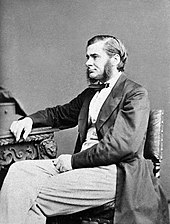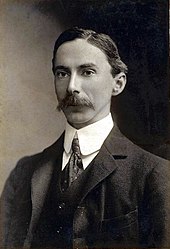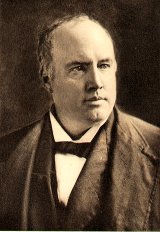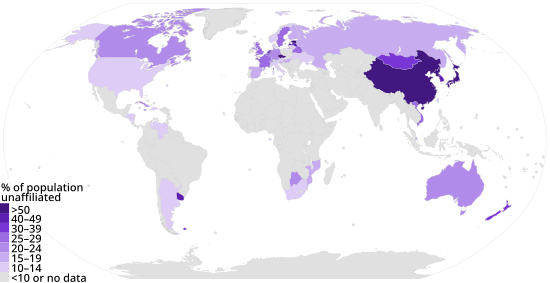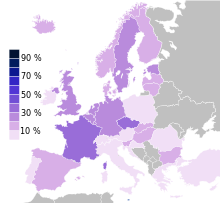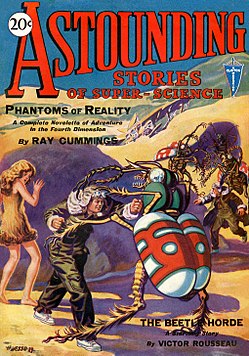Dialectical materialism is a philosophy of science, history, and nature developed in Europe and based on the writings of Karl Marx and Friedrich Engels. Marxist dialectics emphasizes the importance of real-world conditions, in terms of class, labor, and socioeconomic interactions. This is in contrast to the Hegelian dialectic, which emphasizes the observation that contradictions in material phenomena could be resolved by analyzing them and synthesizing a solution whilst retaining their essence. Marx supposed that the most effective solution to the problems caused by said contradictory phenomena was to address and rearrange the systems of social organization at the root of the problems.
Dialectical materialism accepts the evolution of the natural world and the emergence of new qualities of being at new stages of evolution. As Z. A. Jordan noted, "Engels made constant use of the metaphysical insight that the higher level of existence emerges from and has its roots in the lower; that the higher level constitutes a new order of being with its irreducible laws; and that this process of evolutionary advance is governed by laws of development which reflect basic properties of 'matter in motion as a whole'."
The formulation of the Soviet version of dialectical and historical materialism in the 1930s by Joseph Stalin and his associates (such as in Stalin's book Dialectical and Historical Materialism) became the official Soviet interpretation of Marxism.
The term
Marx and Engels never used the words "dialectical materialism" in their own writings. The term was coined in 1887 by Joseph Dietzgen, a socialist who corresponded with Marx, during and after the failed 1848 German Revolution. Casual mention of the term "dialectical materialism" is also found in the biography Frederick Engels, by philosopher Karl Kautsky, written in the same year. Marx himself had talked about the "materialist conception of history", which was later referred to as "historical materialism" by Engels. Engels further explained the "materialist dialectic" in his Dialectics of Nature in 1883. Georgi Plekhanov, the father of Russian Marxism, first used the term "dialectical materialism" in 1891 in his writings on Georg Wilhelm Friedrich Hegel and Marx. Stalin further delineated and defined dialectical and historical materialism as the world outlook of Marxism–Leninism, and as a method to study society and its history.
Historical background
Marx and Engels each began their adulthood as Young Hegelians, one of several groups of intellectuals inspired by the philosopher Hegel. Marx's doctoral thesis, The Difference Between the Democritean and Epicurean Philosophy of Nature, was concerned with the atomism of Epicurus and Democritus, which is considered the foundation of materialist philosophy. Marx was also familiar with Lucretius's theory of clinamen.
Marx and Engels both concluded that Hegelian philosophy, at least as interpreted by their former colleagues, was too abstract and was being misapplied in attempts to explain the social injustice in recently industrializing countries such as Germany, France, and the United Kingdom, which was alleged in the early 1840s to be a growing concern.
In contrast to the conventional Hegelian dialectic of the day, which emphasized the idealist observation that human experience is dependent on the mind's perceptions, Marx developed Marxist dialectics, which emphasized the materialist view that the world of the concrete shapes socioeconomic interactions and that those in turn determine sociopolitical reality.
Whereas some Hegelians blamed religious alienation (estrangement from the traditional comforts of religion) for societal ills, Marx and Engels concluded that alienation from economic and political autonomy, coupled with exploitation and poverty, was the real culprit.
In keeping with dialectical ideas, Marx and Engels thus created an alternative theory, not only of why the world is the way it is but also of which actions people should take to make it the way it ought to be. In Theses on Feuerbach (1845), Marx wrote, "The philosophers have only interpreted the world, in various ways. The point, however, is to change it." Dialectical materialism is thus closely related to Marx's and Engels's historical materialism (and has sometimes been viewed as synonymous with it). Marx rejected the language of "thesis, antithesis, synthesis".
Dialectical materialism is an aspect of the broader subject of materialism, which asserts the primacy of the material world: in short, matter precedes thought. Materialism is a realist philosophy of science, which holds that the world is material; that all phenomena in the universe consist of "matter in motion," wherein all things are interdependent and interconnected and develop according to natural law; that the world exists outside us and independently of our perception of it; that thought is a reflection of the material world in the brain, and that the world is in principle knowable.
Marx criticized classical materialism as another idealist philosophy—idealist because of its transhistorical understanding of material contexts. The Young Hegelian Ludwig Feuerbach had rejected Hegel's idealistic philosophy and advocated materialism. Despite being strongly influenced by Feuerbach, Marx rejected Feuerbach's version of materialism (anthropological materialism) as inconsistent. The writings of Engels, especially Anti-Dühring (1878) and Dialectics of Nature (1875–82), were the source of the main doctrines of dialectical materialism.
Marx's dialectics
The concept of dialectical materialism emerges from statements by Marx in the second edition postface to his magnum opus, Das Kapital. There Marx says he intends to use Hegelian dialectics but in revised form. He defends Hegel against those who view him as a "dead dog" and then says, "I openly avowed myself as the pupil of that mighty thinker Hegel". Marx credits Hegel with "being the first to present [dialectic's] form of working in a comprehensive and conscious manner". But he then criticizes Hegel for turning dialectics upside down: "With him it is standing on its head. It must be turned right side up again, if you would discover the rational kernel within the mystical shell.".
Marx's criticism of Hegel asserts that Hegel's dialectics go astray by dealing with ideas, with the human mind. Hegel's dialectic, Marx says, inappropriately concerns "the process of the human brain"; it focuses on ideas. Hegel's thought is in fact sometimes called dialectical idealism, and Hegel himself is counted among a number of other philosophers known as the German idealists. Marx, on the contrary, believed that dialectics should deal not with the mental world of ideas but with "the material world", the world of production and other economic activity.
For Marx, human history cannot be fitted into any neat a priori schema. He explicitly rejects the idea of Hegel's followers that history can be understood as "a person apart, a metaphysical subject of which real human individuals are but the bearers". To interpret history as though previous social formations have somehow been aiming themselves toward the present state of affairs is "to misunderstand the historical movement by which the successive generations transformed the results acquired by the generations that preceded them". Marx's rejection of this sort of teleology was one reason for his enthusiastic (though not entirely uncritical) reception of Charles Darwin's theory of natural selection.
For Marx, dialectics is not a formula for generating predetermined outcomes but is a method for the empirical study of social processes in terms of interrelations, development, and transformation. In his introduction to the Penguin edition of Marx's Capital, Ernest Mandel writes, "When the dialectical method is applied to the study of economic problems, economic phenomena are not viewed separately from each other, by bits and pieces, but in their inner connection as an integrated totality, structured around, and by, a basic predominant mode of production.".
Marx's own writings are almost exclusively concerned with understanding human history in terms of systemic processes, based on modes of production (broadly speaking, the ways in which societies are organized to employ their technological powers to interact with their material surroundings). This is called historical materialism. More narrowly, within the framework of this general theory of history, most of Marx's writing is devoted to an analysis of the specific structure and development of the capitalist economy.
For his part, Engels applies a "dialectical" approach to the natural world in general, arguing that contemporary science is increasingly recognizing the necessity of viewing natural processes in terms of interconnectedness, development, and transformation. Some scholars have doubted that Engels' "dialectics of nature" is a legitimate extension of Marx's approach to social processes. Other scholars have argued that despite Marx's insistence that humans are natural beings in an evolving, mutual relationship with the rest of nature, Marx's own writings pay inadequate attention to the ways in which human agency is constrained by such factors as biology, geography, and ecology.
Engels's dialectics
Engels postulated three laws of dialectics from his reading of Hegel's Science of Logic. Engels elucidated these laws as the materialist dialectic in his work Dialectics of Nature:
- The law of the unity and conflict of opposites
- The law of the passage of quantitative changes into qualitative changes
- The law of the negation of the negation
The first law, which originates with the ancient Ionian philosopher Heraclitus, can be clarified through the following examples:
For example, in biological evolution the formation of new forms of life occurs precisely through the unity and struggle of opposites in heredity and variability. In physical processes the nature of light was explained precisely by means of the unity and struggle of opposites appearing, for example, as corpuscular and wave properties; this, moreover, cleared the path for a “drama of ideas” in physical science, whereby the opposition and synthesis of corpuscular and wave theories characterized scientific progress. The most basic expression of the unity and struggle of opposites in the world of commodity capitalism is that of use value and value; the most highly developed oppositions in capitalism are the working class and the bourgeoisie,
— The Great Soviet Encyclopedia (1979), Unity and Struggle of Opposites
The first law was seen by both Hegel and Vladimir Lenin as the central feature of a dialectical understanding of things:
It is in this dialectic as it is here understood, that is, in the grasping of oppositions in their unity, or of the positive in the negative, that speculative thought consists. It is the most important aspect of dialectic.
— Hegel, Science of Logic, § 69, (p. 56 in the Miller edition)
The splitting of a single whole and the cognition of its contradictory parts is the essence (one of the "essentials", one of the principal, if not the principal, characteristics or features) of dialectics. That is precisely how Hegel, too, puts the matter.
— Lenin's Collected Works: Volume 38, p. 359: On the question of dialectics.
The second law Hegel took from Ancient Greek philosophers, notably the paradox of the heap, and explanation by Aristotle, and it is equated with what scientists call phase transitions. It may be traced to the ancient Ionian philosophers, particularly Anaximenes from whom Aristotle, Hegel, and Engels inherited the concept. For all these authors, one of the main illustrations is the phase transitions of water. There has also been an effort to apply this mechanism to social phenomena, whereby population increases result in changes in social structure. The law of the passage of quantitative changes into qualitative changes can also be applied to the process of social change and class conflict.
The third law, "negation of the negation", originated with Hegel. Although Hegel coined the term "negation of the negation", it gained its fame from Marx's using it in Capital. There Marx wrote this: "The [death] knell of capitalist private property sounds. The expropriators [capitalists] are expropriated. The capitalist mode of appropriation, the result of the capitalist mode of production, produces capitalist private property. This is the first negation [antithesis] of individual private property. [The "first negation", or antithesis, negates the thesis, which in this instance is feudalism, the economic system that preceded capitalism.] ... But capitalist production begets, with the inexorability of a law of Nature, its own negation. It [final communism, the synthesis] is the negation of [the] negation."
Z. A. Jordan notes, "Engels made constant use of the metaphysical insight that the higher level of existence emerges from and has its roots in the lower; that the higher level constitutes a new order of being with its irreducible laws; and that this process of evolutionary advance is governed by laws of development which reflect basic properties of 'matter in motion as a whole'."
Lenin's contributions
After reading Hegel's Science of Logic in 1914, Lenin made some brief notes outlining three "elements" of logic. They are:
- The determination of the concept out of itself [the thing itself must be considered in its relations and in its development];
- The contradictory nature of the thing itself (the other of itself), the contradictory forces and tendencies in each phenomenon;
- The union of analysis and synthesis.
Lenin develops these in a further series of notes, and appears to argue that "the transition of quantity into quality and vice versa" is an example of the unity and opposition of opposites expressed tentatively as "not only the unity of opposites but the transitions of every determination, quality, feature, side, property into every other [into its opposite?]."
In his essay "On the Question of Dialectics", Lenin stated, "Development is the 'struggle' of opposites." He stated, "The unity (coincidence, identity, equal action) of opposites is conditional, temporary, transitory, relative. The struggle of mutually exclusive opposites is absolute, just as development and motion are absolute."
In Materialism and Empiriocriticism (1908), Lenin explained dialectical materialism as three axes: (i) the materialist inversion of Hegelian dialectics, (ii) the historicity of ethical principles ordered to class struggle, and (iii) the convergence of "laws of evolution" in physics (Helmholtz), biology (Darwin), and in political economy (Marx). Hence, Lenin was philosophically positioned between historicist Marxism (Labriola) and determinist Marxism—a political position close to "social Darwinism" (Kautsky). Moreover, late-century discoveries in physics (x-rays, electrons), and the beginning of quantum mechanics, philosophically challenged previous conceptions of matter and materialism, thus matter seemed to be disappearing. Lenin disagreed:
'Matter disappears' means that the limit within which we have hitherto known matter disappears, and that our knowledge is penetrating deeper; properties of matter are disappearing that formerly seemed absolute, immutable, and primary, and which are now revealed to be relative and characteristic only of certain states of matter. For the sole 'property' of matter, with whose recognition philosophical materialism is bound up, is the property of being an objective reality, of existing outside of the mind.
Lenin was developing the work of Engels, who said that "with each epoch-making discovery, even in the sphere of natural science, materialism has to change its form". One of Lenin's challenges was distancing materialism, as a viable philosophical outlook, from the "vulgar materialism" expressed in the statement "the brain secretes thought in the same way as the liver secretes bile" (attributed to 18th-century physician Pierre Jean Georges Cabanis); "metaphysical materialism" (matter composed of immutable particles); and 19th-century "mechanical materialism" (matter as random molecules interacting per the laws of mechanics). The philosophic solution that Lenin (and Engels) proposed was "dialectical materialism", wherein matter is defined as objective reality, theoretically consistent with (new) developments occurring in the sciences.
Lenin reassessed Feuerbach's philosophy and concluded that it was in line with dialectical materialism.
Lukács's contributions
György Lukács, Minister of Culture in the brief Béla Kun government of the Hungarian Soviet Republic (1919), published History and Class Consciousness (1923), in which he defined dialectical materialism as the knowledge of society as a whole, knowledge which, in itself, was the class consciousness of the proletariat. In the first chapter "What is Orthodox Marxism?", Lukács defined orthodoxy as fidelity to the "Marxist method", not fidelity to "dogmas":
Orthodox Marxism, therefore, does not imply the uncritical acceptance of the results of Marx's investigations. It is not the "belief" in this or that thesis, nor the exegesis of a "sacred" book. On the contrary, orthodoxy refers exclusively to method. It is the scientific conviction that dialectical materialism is the road to truth and that its methods can be developed, expanded, and deepened, only along the lines laid down by its founders. (§1)
In his later works and actions, Lukács became a leader of Democratic Marxism. He modified many of his formulations of his 1923 works and went on to develop a Marxist ontology and played an active role in democratic movements in Hungary in 1956 and the 1960s. He and his associates became sharply critical of the formulation of dialectical materialism in the Soviet Union that was exported to those countries under its control. In the 1960s, his associates became known as the Budapest School.
Lukács, in his philosophical criticism of Marxist revisionism, proposed an intellectual return to the Marxist method. So did Louis Althusser, who later defined Marxism and psychoanalysis as "conflictual sciences", stating that political factions and revisionism are inherent to Marxist theory and political praxis, because dialectical materialism is the philosophic product of class struggle:
For this reason, the task of orthodox Marxism, its victory over Revisionism and utopianism can never mean the defeat, once and for all, of false tendencies. It is an ever-renewed struggle against the insidious effects of bourgeois ideology on the thought of the proletariat. Marxist orthodoxy is no guardian of traditions, it is the eternally vigilant prophet proclaiming the relation between the tasks of the immediate present and the totality of the historical process. (§5)
...the premise of dialectical materialism is, we recall: 'It is not men's consciousness that determines their existence, but, on the contrary, their social existence that determines their consciousness'.... Only when the core of existence stands revealed as a social process can existence be seen as the product, albeit the hitherto unconscious product, of human activity. (§5)
Philosophically aligned with Marx is the criticism of the individualist, bourgeois philosophy of the subject, which is founded upon the voluntary and conscious subject. Against said ideology is the primacy of social relations. Existence—and thus the world—is the product of human activity, but this can be seen only by accepting the primacy of social process on individual consciousness. This type of consciousness is an effect of ideological mystification.
At the 5th Congress of the Communist International (July 1924), Grigory Zinoviev formally denounced Lukács's heterodox definition of Orthodox Marxism as exclusively derived from fidelity to the "Marxist method", and not to Communist party dogmas; and denounced the philosophical developments of the German Marxist theorist Karl Korsch.
Stalin's contributions
In the 1930s, Stalin and his associates formulated a version of dialectical and historical materialism that became the "official" Soviet interpretation of Marxism. It was codified in Stalin's work, Dialectical and Historical Materialism (1938), and popularized in textbooks used for compulsory education within the Soviet Union and throughout the Eastern Bloc. It was exported to China as the "official" interpretation of Marxism but, in its Soviet formulation, has since then been widely rejected there.
Mao's contributions
In On Contradiction (1937), Mao Zedong outlined a version of dialectical materialism that subsumed two of Engels's three principal laws of dialectics, "the transformation of quantity into quality" and "the negation of the negation" as sub-laws (and not principal laws of their own) of the first law, "the unity and interpenetration of opposites".
As a heuristic in science and elsewhere
Historian of science Loren Graham has detailed at length the role played by dialectical materialism in the Soviet Union in disciplines throughout the natural and social sciences. He has concluded that, despite the Lysenko period in genetics and constraints on free inquiry imposed by political authorities, dialectical materialism had a positive influence on the work of many Soviet scientists.
Some evolutionary biologists, such as Richard Lewontin and the late Stephen Jay Gould, have tried to employ dialectical materialism in their approach. They view dialectics as playing a precautionary heuristic role in their work. From Lewontin's perspective, we get this idea:
Dialectical materialism is not, and never has been, a programmatic method for solving particular physical problems. Rather, a dialectical analysis provides an overview and a set of warning signs against particular forms of dogmatism and narrowness of thought. It tells us, "Remember that history may leave an important trace. Remember that being and becoming are dual aspects of nature. Remember that conditions change and that the conditions necessary to the initiation of some process may be destroyed by the process itself. Remember to pay attention to real objects in time and space and not lose them in utterly idealized abstractions. Remember that the qualitative effects of context and interaction may be lost when phenomena are isolated". And above all else, "Remember that all the other caveats are only reminders and warning signs whose application to different circumstances of the real world is contingent."
Gould shared similar views regarding a heuristic role for dialectical materialism. He wrote that:
... dialectical thinking should be taken more seriously by Western scholars, not discarded because some nations of the second world have constructed a cardboard version as an official political doctrine.
... when presented as guidelines for a philosophy of change, not as dogmatic precepts true by fiat, the three classical laws of dialectics embody a holistic vision that views change as interaction among components of complete systems and sees the components themselves not as a priori entities, but as both products and inputs to the system. Thus, the law of "interpenetrating opposites" records the inextricable interdependence of components: the "transformation of quantity to quality" defends a systems-based view of change that translates incremental inputs into alterations of state, and the "negation of negation" describes the direction given to history because complex systems cannot revert exactly to previous states.
This heuristic was also applied to the theory of punctuated equilibrium proposed by Gould and Niles Eldredge. They wrote that "history, as Hegel said, moves upward in a spiral of negations", and that "punctuated equilibria is a model for discontinuous tempos of change (in) the process of speciation and the deployment of species in geological time." They noted that "the law of transformation of quantity into quality... holds that a new quality emerges in a leap as the slow accumulation of quantitative changes, long resisted by a stable system, finally forces it rapidly from one state into another", a phenomenon described in some disciplines as a paradigm shift. Apart from the commonly cited example of water turning to steam with increased temperature, Gould and Eldredge noted another analogy in information theory, "with its jargon of equilibrium, steady state, and homeostasis maintained by negative feedback", and "extremely rapid transitions that occur with positive feedback".
Lewontin, Gould, and Eldredge were thus more interested in dialectical materialism as a heuristic than a dogmatic form of 'truth' or a statement of their politics. Nevertheless, they found a readiness for critics to "seize upon" key statements and portray punctuated equilibrium, and exercises associated with it, such as public exhibitions, as a "Marxist plot".
Philosophical evaluations
Some critics argue against dialectical materialism on account of its adherence to a purely materialist worldview, while others have objections to the dialectic method it employs. There are critics, such as the Marxist Alain Badiou, who dispute the way the concept is interpreted. Joseph Needham, an influential historian of science and a Christian who nonetheless was an adherent of dialectical materialism, suggested that a more appropriate term might be "dialectical organicism". Leszek Kołakowski, writing in Main Currents of Marxism (1976), argued that dialectical materialism consists partly of "truisms with no specific Marxist content", partly of "philosophical dogmas", partly of nonsense, and partly of statements that—depending on how they are interpreted—could be any of these things. H. B. Acton described the creed as "a philosophical farrago". Max Eastman argued that dialectical materialism lacks a psychological basis.
Philosopher Allen Wood argued that, in its form as an official Soviet philosophy, dialectical materialism was doomed to be superficial because "creativity or critical thinking" was impossible in an authoritarian environment. Nevertheless, he considered the basic aims and principles of dialectical materialism to be in harmony with rational scientific thought.
Economist and philosopher Ludwig von Mises wrote a critique of Marxist materialism which he published as a part of his 1957 work Theory and History: An Interpretation of Social and Economic Evolution.

